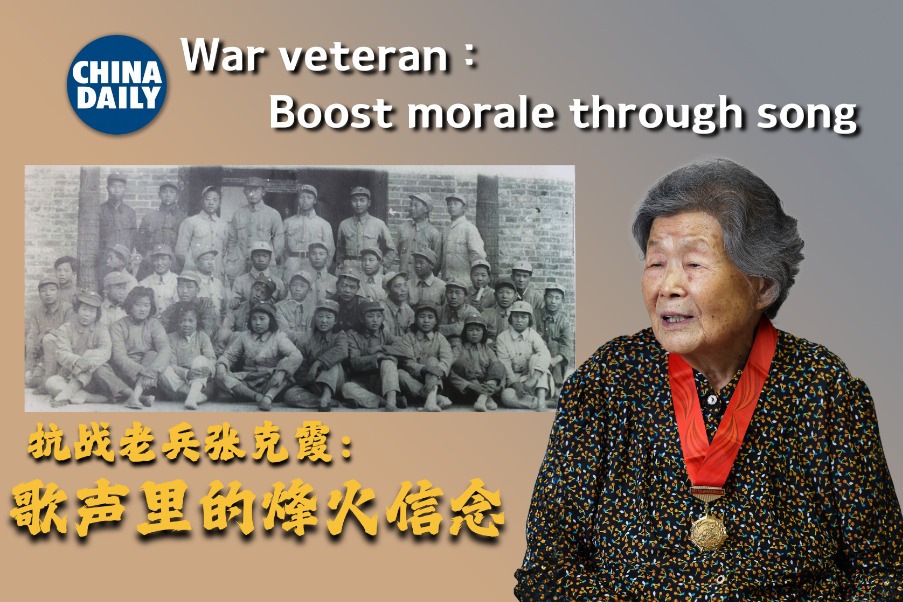A Chinese in China who can't really read Chinese

It is incredibly ironic that I'm now working in China, because Chinese actually used to be the bane of my existence.
Yes, I may be a Chinese but I hated learning Chinese. It was just too tough having to remember all the different strokes for each character. To make matters worse, there can be several permutations for a particular term.
For example, I used to always get confused with the word , which can be pronounced xing or hang. The former refers to "walk" or "travel" while the latter can mean "line" or "profession". When combined with the word , the resulting (yn hng) means "bank". This was all too mind-boggling for me.
Till today, I still get nightmares about Chinese words. In these dreams, I am seated in an exam hall with a Chinese essay exam paper in front of me. The only words that I know how to write are "" (One pleasant morning, Xiao Ming) because this was the way many people started their essays during my time.
I am not joking, just ask any Singaporean and he or she will verify this.

To ensure that I did not flunk my exams, my parents sent me for tuition classes with my paternal grandparents. Grandma used to be a Chinese teacher. Grandpa used to be the principal of the Chinese school. It was obvious that they were going to be excellent tutors.
It was also obvious that their proficiency of the Chinese language did not get handed down the generations.
Back during those times, rote learning was how we picked up Chinese. I would be instructed to write every character 10 times on pieces of paper that were filled with little green boxes. We would then take a short break before grandma conducted a test which required me to write whatever she recited. Every mistake I made was met with a hard knock on my knuckles by wooden rods.
As it turned out, corporal punishment did yield results. After all, I managed to get a B3 grade for my Chinese O Level exams. I actually scored worse for English. Unfortunately, I have now forgotten how to write most Chinese words except for my name.
These days, as a copyeditor at China Daily, I have learned to appreciate the dynamism of the Chinese language because of the nature of my job. I occasionally come across an incomprehensible paragraph in English, only to discover that it was a literal translation of a very poetic seven-character Chinese saying that was mentioned by the interviewee.
I have also come to realize that translation websites do a very poor job at translating huge chunks of text, because technology is yet to be able to determine the nuances of a language. Besides, some words simply cannot be translated into a different language without sounding odd or crass.
For instance, a reporter once thought I was joking when I told her that the English translation of (gn m) was "godmother", and questioned why "god" was even in the picture.
I had no explanation as to why the word is structured as such, though I could pose the same question to her by asking why the literal translation of is made up of the words "dry" and "mother" in Chinese. Come think of it, the character can also be pronounced in the fourth tone to refer to that four-letter cuss word that begins with F.
The population of my home country of Singapore may be predominantly Chinese, but not all Chinese families speak Mandarin. In fact, the only people I spoke Mandarin to were my grandparents, except for my maternal grandfather whom couldn't speak a word of Mandarin, a shortcoming that actually managed to save his life during the Japanese occupation from 1942 to 1945.
According to my mother, my grandfather - a Peranakan Chinese who spoke Malay instead of Mandarin - was once detained by Japanese soldiers at a checkpoint in Singapore, but because he could not speak or understand a word of Mandarin, the soldiers were left puzzled as to who he really was. Was he Malay? Was he a Chinese spy pretending to not understand Chinese?
In the midst of all the confusion, my grandfather quietly snuck past the barrier of concertina wires, climbed a fence and bolted into the forest. The rest of those who were detained were apparently executed. At least that's what my grandfather claimed.
I'm confident that I would not be as lucky as my grandfather should I be a Chinese illiterate in China, because that would mean I won't be able to enjoy the convenience afforded by all the wonderful apps available here.
Then again, it might actually been better if I could not read a single Chinese word, because this wonderful app called Taobao is bleeding my wallet dry.
Contact the writer at alywin@chinadaily.com.cn
(China Daily USA 02/03/2017 page9)
Today's Top News
- Germany vows to tackle people-trafficking to the UK
- Greek farmers fear fresh US tariff blow
- Global banks, institutions optimistic on China growth
- Chinese people's heroic victory praised
- Sichuan's ethnic festival attracts thousands of tourists
- Goal of high-tech self-reliance unchanged: China Daily editorial































